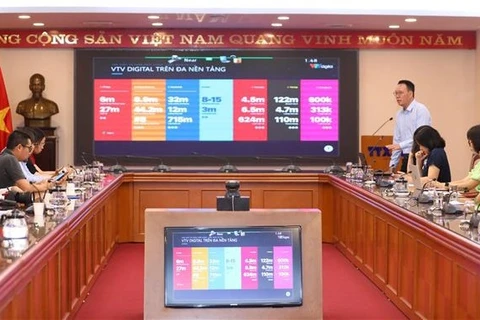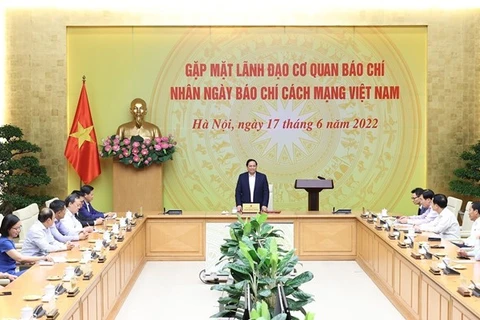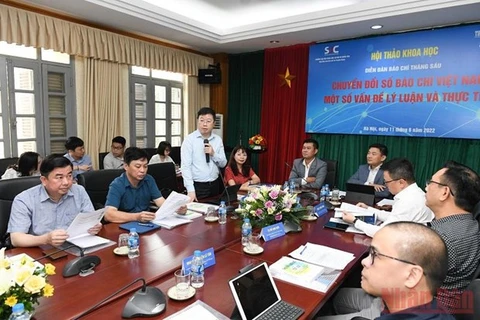Hanoi (VNA) – Digital transformation is an urgent need for press agencies and journalists, and a slow change may lead to a decrease in the number of readers, according to the Vice Chairman of the Vietnam Journalists' Association (VJA) Nguyen Duc Loi.
Loi said that digital transformation is one of the VJA’s major orientations in its current 2020-2025 tenure. It means that the association is taking measures to support and create favourable conditions for press agencies in this process.
According to the official, some Vietnamese press agencies have partially carried out digital transformation and journalists applied a number of new working methods using modern technologies, developing multimedia and converged newsrooms. The public has also gained access to diverse and modern information products.
However, to achieve full and comprehensive digital transformation, Loi stressed the need to change the thinking, right from the way of managing and administering a newspaper as well building a team of tech-savvy journalists with modern working methods.
The organisation of information production must be digitised in all stages, and newsrooms need to build or join big data warehouses and invest in modern equipment.
“The journey to digital transformation is still very long and we need to do it quickly because people of today's era have changed, and the press must also change quickly to meet the needs of readers to access information,” stated Loi.
For the successful digital transformation, the official, himself a veteran journalist, stressed that the determination of the head of the press agency is one of the important factors.
“When the leader is determined, capable and understanding about digital transformation, everything will be very convenient. However, I think that the head may not be knowledgeable about digital transformation but with determination, it can still be done,” he added.
Regarding the collection of readership fees, the Vice Chairman of the Vietnam Journalists’ Association said that charging readers appeared in the world a long time ago, but in Vietnam only in recent years.
Several newspapers have offered paid content, but the effect is not high, as Vietnamese people's habit of reading newspapers for free is difficult to change and news agencies do not have attractive enough products.
To collect fees, press agencies must produce really valuable works, with in-depth analysis and valuable data, Loi said, advising them to employ capable writers and technology experts to create products with quality and attractive content enriched with photos, infographics and videos.
He also pointed out a big gap in the digital transformation between localities. To carry out digital transformation, resources are needed, which is what local press agencies are lacking, especially in poor and remote areas.
The VJA is providing training and updating knowledge and skills on modern press for local associations, and will continue sharing experience in applying advanced technologies in improving the quality of press works for them, he said.
The VJA will also continue to raise voice, contribute ideas and give advice on issues of the Press Law to create a favourable legal corridor for the press to develop, he added.
Regarding personnel streamlining during the digital transformation process, Loi said that leaders of press agencies have to seek measures to restructure human resources and conduct training courses to provide staff with new knowledge on new media forms.
If someone cannot improve themselves and catch up with the development, they can be replaced, he stressed.
According to Vu Viet Trang, General Director of the Vietnam News Agency (VNA), in the flow of strong digital transformation, most press agencies have been shifting to a multimedia model, and social networks are a channel for press agencies to advertise their “brands” and information products and then attract the public to their traditional and typical news items.
The number of social network users in Vietnam currently stands at around 73.6 million, 95% of which use Facebook. Meanwhile, the monthly active users of Zalo, a social media platform in Vietnam, reached 74.7 million in February this year, higher than the 67.8 million users of Messenger of Facebook-owner Meta./.























